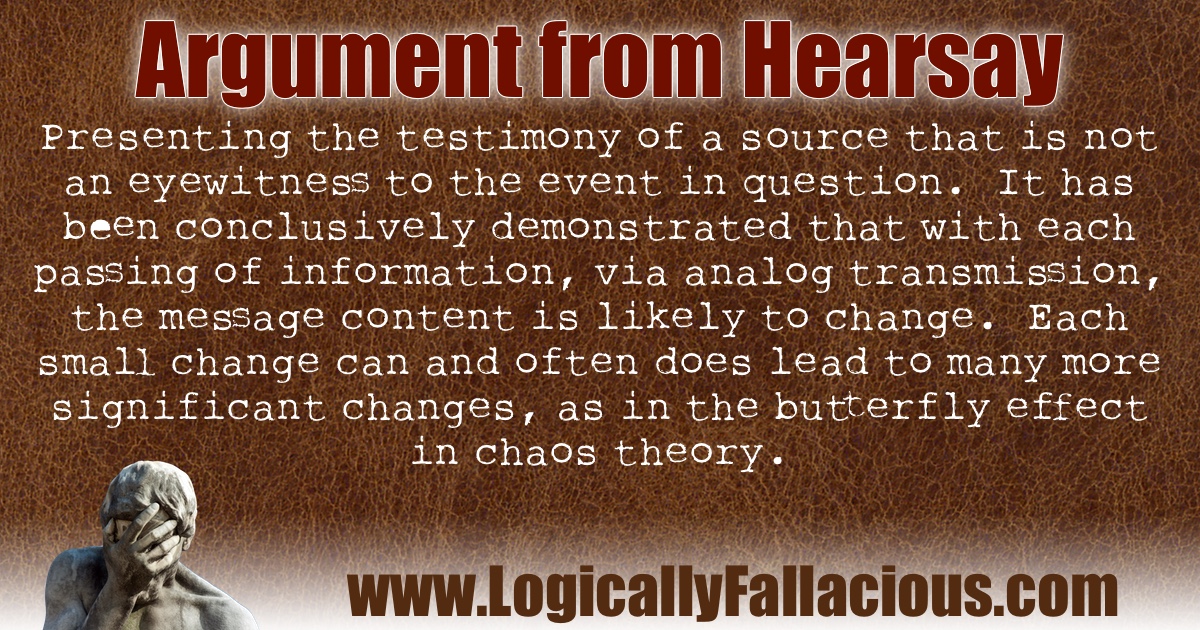(also known as: the telephone game, Chinese whispers, anecdotal evidence, anecdotal fallacy/Volvo fallacy [form of])
Description: Presenting the testimony of a source that is not an eyewitness to the event in question. It has been conclusively demonstrated that with each passing of information, via analog transmission, the message content is likely to change. Each small change can and often does lead to many more significant changes, as in the butterfly effect in chaos theory.
Hearsay is generally considered very weak evidence if it is considered evidence at all. Especially when such evidence is unfalsifiable (not able to be proven false).
Logical Form:
Person 1 told me that he saw Y.
Therefore, I must accept that Y is true.
Example #1:
Lolita: Bill stole the money from the company petty cash fund.
Byron: How do you know?
Lolita: Because Diane told me.
Byron: How does she know?
Lolita: Julian told her.
Byron: Did anyone actually see Bill steal the money?
Lolita: I don’t know, we could ask Morris.
Byron: Who’s he?
Lolita: The guy who told Julian.
Explanation: Lolita is making a bold claim about Bill, based on hearsay. Not only did Lolita not see Bill steal the money, but neither did Diane, Julian, and who knows about Morris.
Example #2:
There is life after death! I once heard this story from my friend’s sister, that her maid of honor’s niece knew this guy who had a friend who heard from his camp counselor a story where some guy was in a coma and saw his grandparents in a tunnel of light, and they told him the winning lottery numbers! I swear to God it’s true!
Explanation: The validity of the testimony of a coma patient aside, in all likelihood, stories like these are either pure fabrications or exaggerations of some much less interesting story. Due to something called the confirmation bias and the wishful thinking fallacy, those who already believe in such phenomena are likely to accept such stories as evidence for their truthfulness when, in fact, such stories are not evidence.
Exception: When you trust the source, and trust that the source is accurately representing the facts, you can at least partially accept the claim, depending on the consequences of accepting or rejecting the claim. For example, if your best friend told you that her best friend told her about an amazing one day sale at the mall, risking a 10-minute drive to the mall might be justified based on the sources.
Fun Fact: People are often egregiously wrong in their interpretation of events. As time passes, imagination is confused with actual events. You might be able to trust that your best friend is telling you the truth, but only the truth so far as she recalls from her initial interpretation.
Variation: The anecdotal fallacy, or Volvo fallacy, is allowing a specific instance of anecdotal evidence to lend much more weight to an argument than it should.

References:
This a logical fallacy frequently used on the Internet. No academic sources could be found.